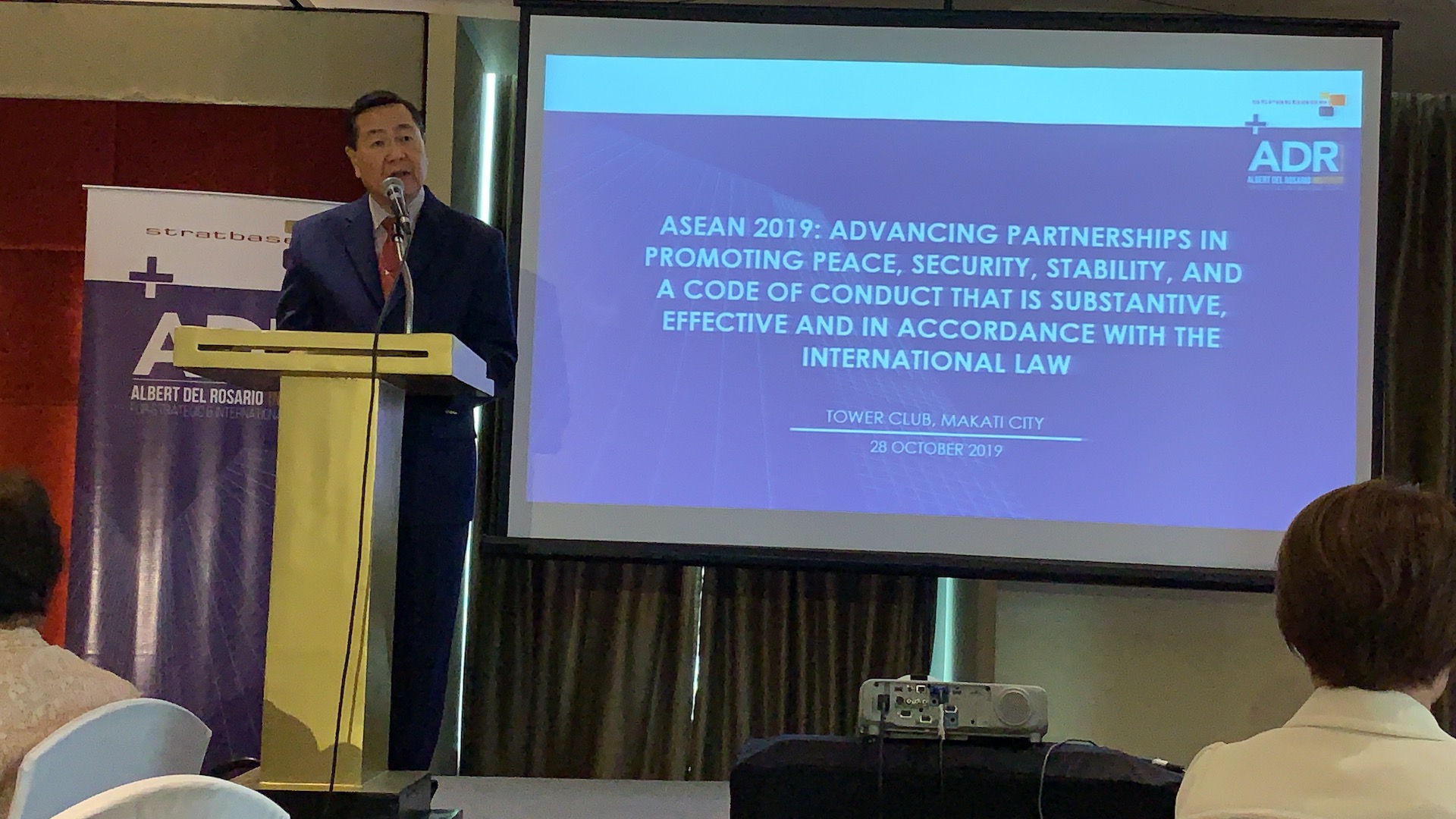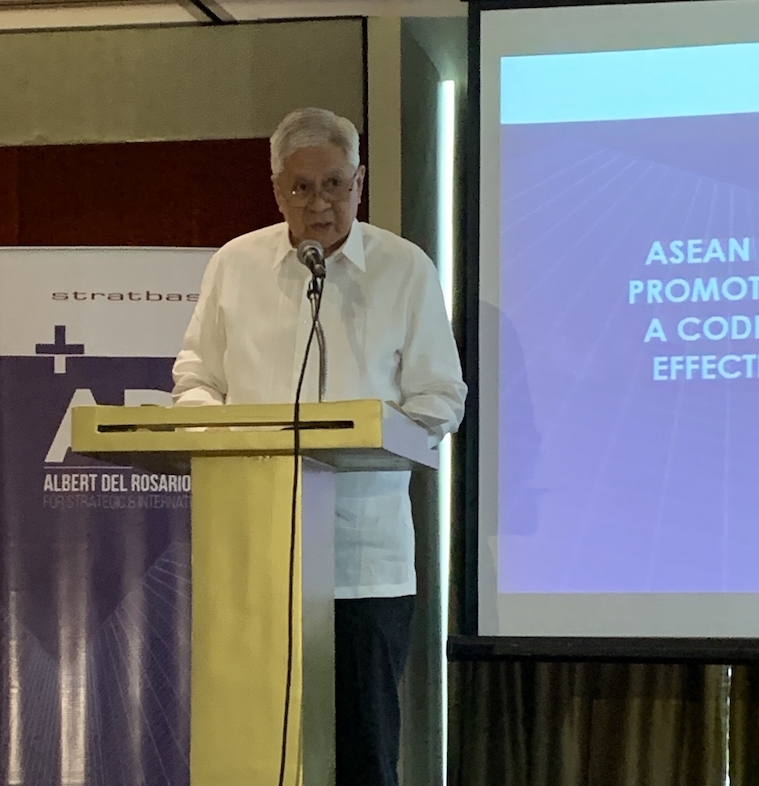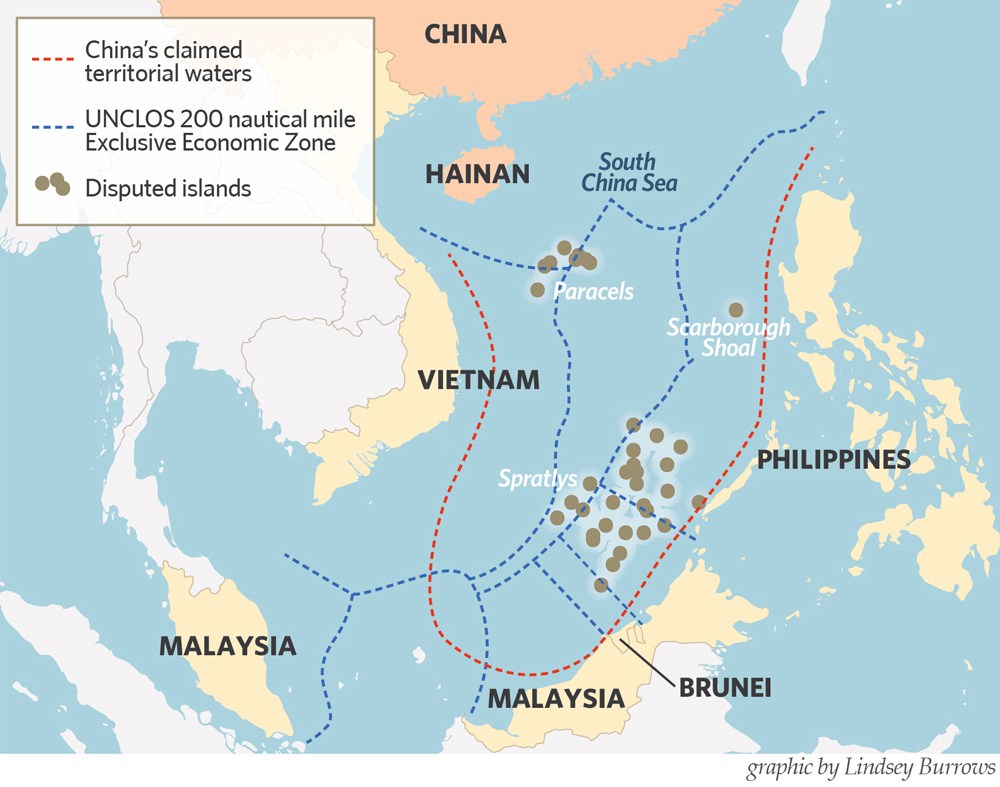The West Philippine Sea dispute: Is it really over or just the beginning?
It is a mum victory for the Philippines. Yesterday, at 5PM PST, the Permanent Court of Arbitration in the Hague, Netherlands has awarded to the Philippines its claims on the contested islands in the West Philippine Sea against China. The Court favored to uphold the 200 nautical mile exclusive economic zone of the Philippines versus the nine dash line historical document being claimed by China.
In a 499-page dossier released by the international court, the 1982 United Nations Convention on the Laws of the Sea or UNCLOS became the cornerstone of the rulings made. All evidences presented by the Philippines was clearly deliberated upon and decided on. It clearly declares that China has breached its obligations as stated in the articles of the Convention, which included:
- China’s unlawful prevention of Filipino fishermen to engage in traditional fishing in Scarborough Shoal
- Chinese flagged vessels fishing within the Exclusive Economic Zone (EEZ) of the Philippines
- Chinese fishermen damaging the marine environment through hunting endangered species and other marine life
- The creation of Chinese artificial islands in contested zones through land reclamation and construction while proceedings were ongoing
There was also a declaration on the rightful acknowledgement that Mischief Reef and Second Thomas Shoal are within the EEZ of the Philippines.
A Hollow Victory?
As soon as news broke out, Filipinos all over the world expressed joy and relief after hearing a favorable decision from the Hague. In social media, Filipinos expressed their emotions through #CHexit, an iteration of Brexit which immediately became a trending topic on Twitter. The only one who doesn’t seem so jovial was the Foreign Affairs Secretary himself, Perfecto Yasay Jr., according to some netizens. In a press release from the Department of Foreign Affairs (DFA), the Secretary stated:
“The Philippines welcomes the issuance today, 12 July 2016, of the Award by the Arbitral Tribunal constituted by the Permanent Court of Arbitration under Annex VII of the 1982 United Nations Convention on the Law of the Sea (UNCLOS) on the arbitration proceedings initiated by the Philippines with regard to the South China Sea.
Our experts are studying the Award with the care and thoroughness that this significant arbitral outcome deserves. In the meantime, we call on all those concerned to exercise restraint and sobriety.
The Philippines strongly affirms its respect for this milestone decision as an important contribution to ongoing efforts in addressing disputes in the South China Sea. The decision upholds international law, particularly the 1982 UNCLOS.
The Philippines reiterates its abiding commitment to efforts to pursue the peaceful resolution and management of disputes with a view to promoting and enhancing peace and stability in the region.”
The Duterte Cabinet was clear in its stand not to use the arbitral tribunal’s decision to “taunt or flaunt” to China and to the world. In a Cabinet meeting on July 12, the government requested everyone to exercise prudence over the issue. If we clearly observe the news, only Yasay is speaking out in the Cabinet; all others are privy to giving out comments with regards to the issue.
As to why the Duterte government is less celebratory in tone, one can just imagine the aftermath of this decision. Yasay will have to spearhead what might become one of the most difficult diplomatic talks with China especially after the ruling that further aggravates the already irked Chinese government. China’s President Xi Jinping was unfazed by the ruling and has asked for the People’s Liberation Army to prepare for combat in case things escalate in the West Philippine Sea. China’s Ministry of Foreign Affairs also released a statement, saying:
“With regard to the award rendered on 12 July 2016 by the Arbitral Tribunal in the South China Sea arbitration established at the unilateral request of the Republic of the Philippines (hereinafter referred to as the “Arbitral Tribunal”), the Ministry of Foreign Affairs of the People’s Republic of China solemnly declares that the award is null and void and has no binding force. China neither accepts nor recognizes it.”
With such a strong and defiant statement from China, some experts have seen the Court of Arbitration’s award as a hollow victory for the Philippines, as China was unyielding to the court ruling. China further stated that the Philippines’ decision to take the dispute to an international arbitration court was done out of bad faith and had not honored the 2002 Declaration on the Conduct of Parties in the South China Sea (DOC) which stated that disputes should be settled directly with nations concerned. This further explains the non-participation of China in the arbitration case.
But obviously, this sea dispute with China is more than just what it is. There is also the bigger underlying tone, which is an increasing friction between two of the biggest superpowers in the world: China and the United States.
Torn Between Two Powers
This is where the Philippines gets caught in the middle. Both the US and China are our favored allies. Our ties with China goes way back pre-colonial times when trade routes have already been established even before the Philippines was born. On the other hand, the United States has been our strongest ally since World War II and has done much to fight alongside our troops during those trying times. We’ve benefited much from the ties we have with these two countries so it is perhaps unwise to favor a side.
From the perspective of China, it thinks that the “Imperialist Western societies” have given the Philippines jurisdiction over a sea that they have historically owned for the longest time. From the perspective of the United States and other western countries, China is bullying the Philippines by imposing its power and military strength in occupying areas of the West Philippine Sea.
But clearly, China’s call for military escalation does not come from the arbitration ruling alone. It comes from the fact that the United States military has stepped in through an allied partnership with the Philippines. China is not pleased with the Philippines taking the dispute to an international court (as some would say, it was a wrong move by the Aquino administration), but it seems to be more irritated by the US military presence in the West Philippine Sea and South China Sea.
With China provoked, Washington backs the ruling that it is legal and binding, adding that “the world is watching” them. Of course, the United States wants to maintain its strong presence in the Asia Pacific Region but it is still not part of the UNCLOS and has mainly been an “observer and protester” in these sea disputes.
In the end, the ball is still in the hands of the Philippines. The events of July 12 will be the most critical as our country goes back to the negotiation table with China. Surely, nothing is certain at this point, but going to war is the last thing we should all have in mind.



